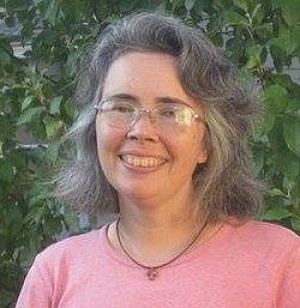Susan Windley-Daoust, Ph.D., is an enthusiastic lay Catholic theologian: married, mother to five, a spiritual director, and assistant professor of Theology at Saint Mary's University of Minnesota. She has been teaching undergraduates, graduate students, and lay ministers for over 15 years. She...
show more
Susan Windley-Daoust, Ph.D., is an enthusiastic lay Catholic theologian: married, mother to five, a spiritual director, and assistant professor of Theology at Saint Mary's University of Minnesota. She has been teaching undergraduates, graduate students, and lay ministers for over 15 years. She also has been very involved in the life of her parishes and the local Catholic Worker community.Theology of the Body, Extended, comes out of a weaving of many threads in her life: a professional interest in 20th century personalism and phenomenology, the excellent questions her students ask, the surprises found in reading John Paul II's theology of the body audiences, ongoing community relationships that attend to the poor and vulnerable, giving birth, adopting, working with people with disabilities, watching people die, learning and offering spiritual direction. Many of the books written about the Theology of the Body have focused on its impact in understanding sexuality and marriage. Windley-Daoust argues that if the ensouled body is, as Michael Waldstein says, a "pre-given language of self-giving and fruitfulness," there must be other primal human experiences that have a meaning that points us to the lavish love of God: giving birth, living with impairment, even dying. All these could and should be part of the Theology of the Body, as well.But more than anything else, she offers that the Theology of the Body is about perception, or seeing. How do we learn to see more clearly the work of God in our lives, and how do we grow in that relationship with God? Beyond acknowledging our original creation as a sign that points to God, we are called to see the work of the Holy Spirit in our lives on a daily basis. It is hard to argue that there is anything more important; and the Theology of the Body helps us to do just that. She writes like a teacher and theologian, but also like a spiritual director and disciple on the journey.Windley-Daoust has also written a book on the image of God, and has contributed to books on Catholic and Christian blogging. She has published articles in Homiletic and Pastoral Review, America magazine, and Sojourners, as well as academic journals. She also has two blogs of her own: the award winning "The Ironic Catholic" (a humor blog), and "Theology of the Body, Extended" (a book based blog).
show less

